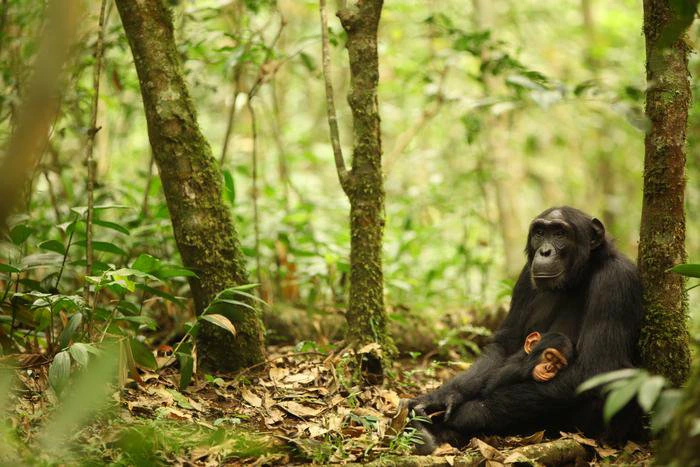Chimpanzees Exhibit Genetic Adaptations for Their Local Environments and Resistance to Malaria

View pictures in App save up to 80% data.
Chimpanzees, our nearest evolutionary kin, exhibit a remarkable ability to genetically adapt to their specific environmental circumstances. A groundbreaking study spearheaded by a group of international researchers from University College London (UCL) has uncovered vital information regarding how these extraordinary primates have developed to thrive in diverse habitats throughout Africa. By examining the genetic changes that support their survival, this research indicates that these adaptations not only shed light on the evolutionary path of chimpanzees but also provide important insights into the effects of malaria on human populations.
Notably, chimpanzees possess more than 98% of their DNA in common with humans, establishing them as vital subjects for research in evolutionary biology and disease resistance. The results of this extensive study, recently published in the prestigious journal Science, pave the way for new insights into how genetic diversity can provide benefits in the face of environmental changes and disease challenges, especially malaria, which continues to pose significant risks for both wild chimpanzees and humans alike.
Chimpanzee populations from various regions in Africa exhibit unique genetic adaptations that correspond to their specific environments, underscoring their ability to thrive amidst ecological diversity. Unlike many other primates that primarily reside in forested areas, chimpanzees have shown remarkable flexibility by inhabiting a range of ecosystems, from open woodlands to savannahs. This evolutionary adaptability is vital, particularly given that chimpanzees are classified as endangered due to threats such as habitat destruction, poaching, and the transmission of diseases linked to human activities.
Professor Aida Andrés, the primary author of the study from the UCL Genetics Institute, highlights the importance of comprehending these genetic adaptations for the survival of chimpanzee populations and their resilience against environmental shifts. The research team analyzed the genetic data of 828 wild chimpanzees from 30 diverse populations, employing advanced genomic methods to explore how genetic variations correspond to the unique challenges encountered by each group in their specific environments.
The research utilized a methodology that focused on collecting and analyzing fecal samples through the Pan African Programme: The Cultured Chimpanzee (PanAf). This cutting-edge strategy enabled the team to obtain genetic information while minimizing interference with the elusive wild chimpanzee populations, thus safeguarding their natural behaviors and habitats. By employing sophisticated laboratory techniques, the study successfully identified exonic variants associated with pathogen resistance, providing insights into the evolution of these genetic traits in relation to local environmental challenges.
In their research, scientists discovered compelling evidence of genetic adaptation linked to various pathogens, particularly emphasizing malaria. The findings indicated that specific genetic variants were more common in chimpanzees living in areas abundant with pathogens, suggesting that malaria poses a significant health risk to these groups. Notably, the genes GYPA and HBB, which are associated with malaria resistance in humans, were identified as key elements in the adaptation o